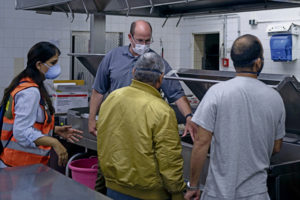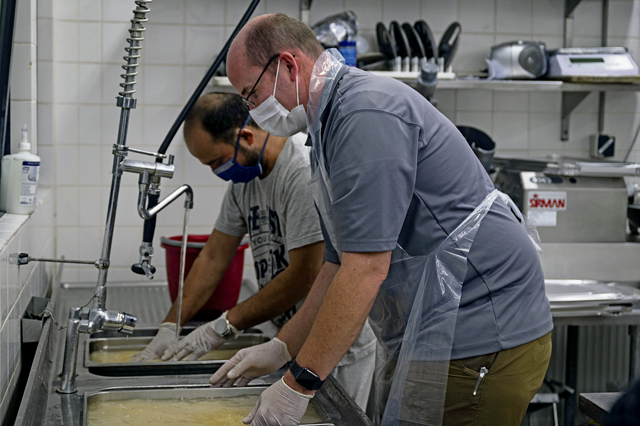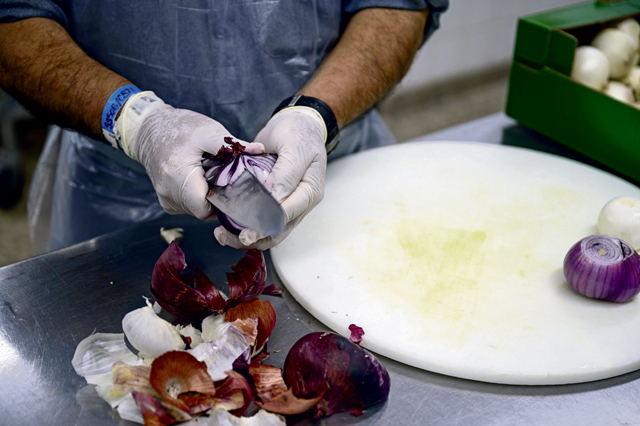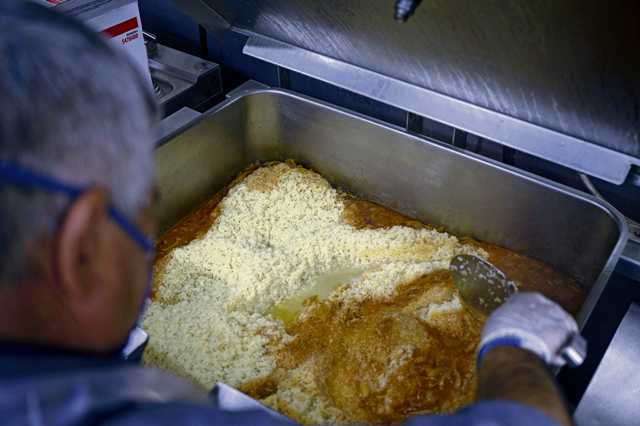In an attempt to provide a taste of home, personnel assigned to the 86th Force Support Squadron and the 786th Force Support Squadron met with evacuees to gain a better understanding of traditional Afghan meal preparation. They learned how to prepare and cook palatable and culturally appealing meals for the thousands of evacuees currently at Ramstein Air Base, Sept. 14.

“We have been at this for a few weeks so now we’re going into the sustainment phase,” said Master Sgt. Emmanuel Santillan, 786th FSS sustainment services flight chief.
“We’re looking at improving processes, particularly in the food options we provide to them. We’re looking at how to cook food in a different manner and style than what we’re used to and how to be more culturally aware of what we’re providing the evacuees.”
During the peak of Operation Allies Refuge, the 86th and 786th FSS components were providing meals for more than 15,000 evacuees.
“Right now, we are feeding anywhere between 6,000 to 8,000 evacuees daily, per meal period,” Santillan said.
Although thousands of evacuees have departed from Ramstein and have been transported to other transient locations, there are still thousands here who still require food support.
“The misconception is Afghanistan has only one culture, but there are several intertwined,” Santillan said. “There are different tribes in each pod, so our goal is to get each tribe’s input, (prepare) their food to taste similar to (what they would cook) themselves.”
During the outreach initiative, an evacuee with exceptional cooking credentials along with the help of an evacuee assistant, made a meal for the 786th and 86th FSS staff to reflect the variety of spices and ingredients used in a customary Afghan dish.
“We learned alot about the spices they use as well as the methods they use to cook their food. That’s probably the biggest thing we’re trying to (master),” said Ben Furqueion, 86th FSS business operations flight chief.
After the food was prepared, the Afghan chefs sat down with the Ramstein staff and enjoyed a meal together.
“Having the opportunity to sit down and have a meal with them was an amazing opportunity to not only integrate, but to understand their culture and how we can work together as one team,” Santillan said. “They were also able to see some of the challenges that arise when having to cook on such a mass scale.
The goal of the outreach program is to help the food sustainment flights to understand the cultural nuisances involved in food preparation.
“One of our main goals is to accommodate them and bring a little piece of home to our guests,” Furqueion said.





